Meet The Researcher: Jose Gutierrez Researches Metformin, Normally And Effectively Used To Treat Type II Diabetes, As A Possible Therapeutic For Advanced Prostate Cancer
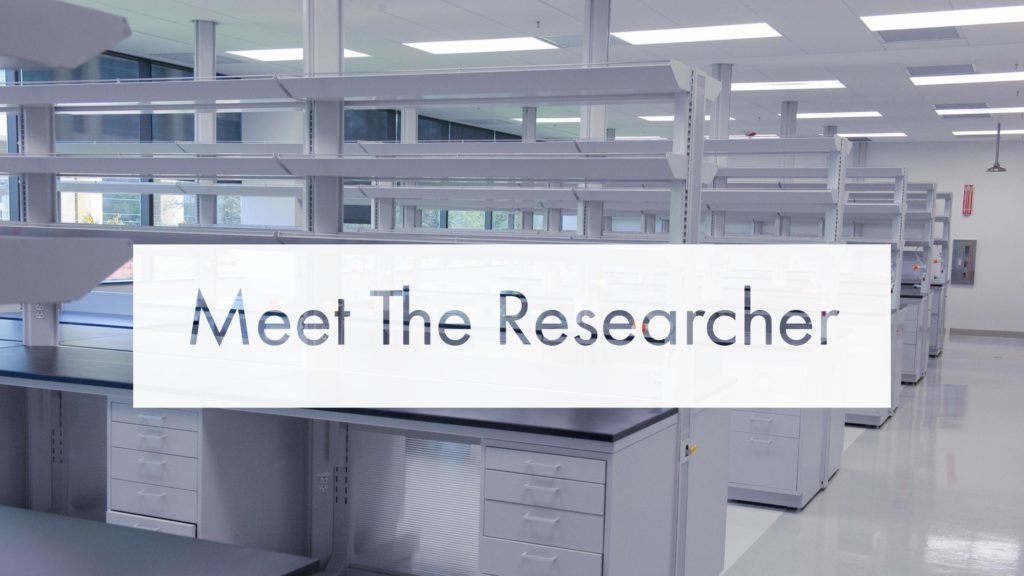
Tell me about yourself, what year are you, what program/discipline? Who is your mentor?
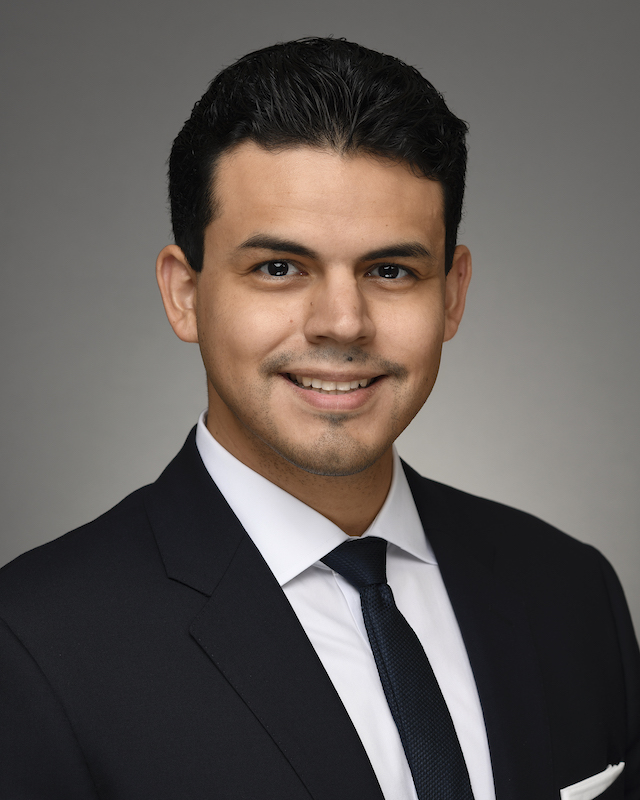 I am Jose Gutierrez. I grew up in a small town in South Texas. I started having a major interest in science in high school. I entered a science fair with a project doing basic quality tests on some local water sources, inspired by a recent news article saying deposits from a uranium mine had contaminated the water system in the next town over. After high school I got my bachelor’s degree in Biomedical Sciences from Texas A&M University- Kingsville. I then began basic science research at Kingsville in a microbiology lab studying Methicillin-resistant Staphylococcus aureus (MRSA) with Dr. Jean Escudero. I came to UT Health San Antonio in 2015. I currently am a sixth year Ph.D. candidate in the Cell Biology, Genetics, and Molecular Medicine discipline of the Integrated Biomedical Sciences Ph.D. program. My mentor is Dr. Dean Bacich of the Urology department.
I am Jose Gutierrez. I grew up in a small town in South Texas. I started having a major interest in science in high school. I entered a science fair with a project doing basic quality tests on some local water sources, inspired by a recent news article saying deposits from a uranium mine had contaminated the water system in the next town over. After high school I got my bachelor’s degree in Biomedical Sciences from Texas A&M University- Kingsville. I then began basic science research at Kingsville in a microbiology lab studying Methicillin-resistant Staphylococcus aureus (MRSA) with Dr. Jean Escudero. I came to UT Health San Antonio in 2015. I currently am a sixth year Ph.D. candidate in the Cell Biology, Genetics, and Molecular Medicine discipline of the Integrated Biomedical Sciences Ph.D. program. My mentor is Dr. Dean Bacich of the Urology department.
What is your research about?
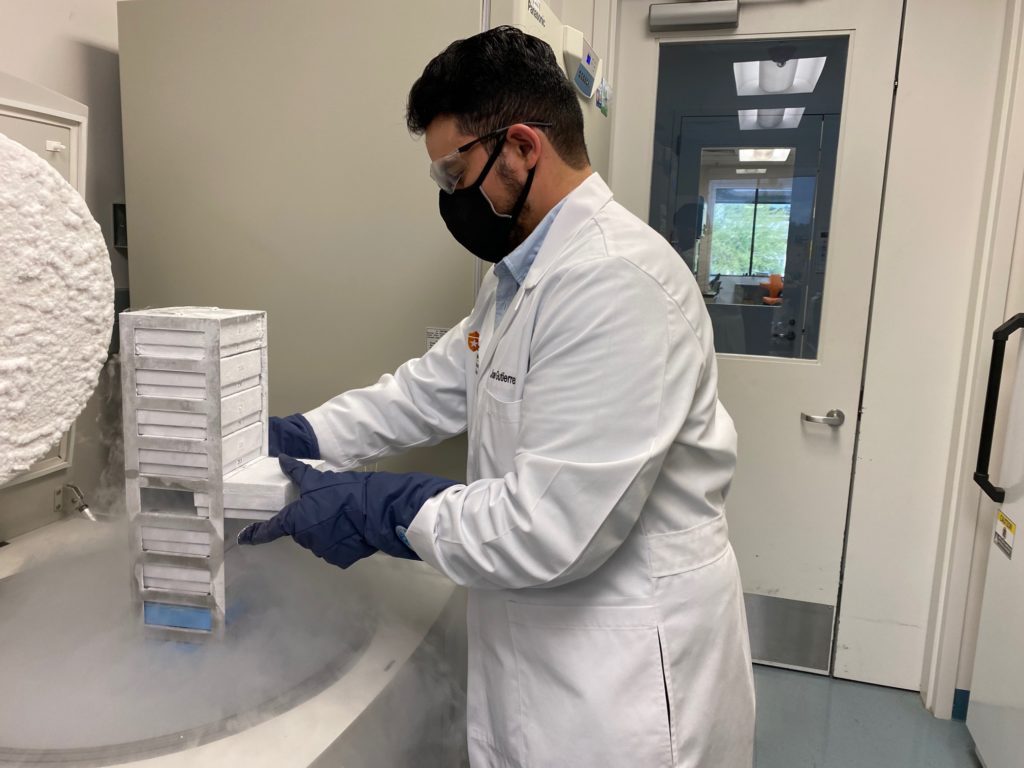
My lab studies the initiation and progression of prostate cancer and its relation to one-carbon metabolism, which is an important process almost all cells use to grow. My dissertation project is focused on exploring the drug Metformin, normally and effectively used to treat Type II diabetes, as a possible therapeutic for advanced prostate cancer.
Why is your research important?
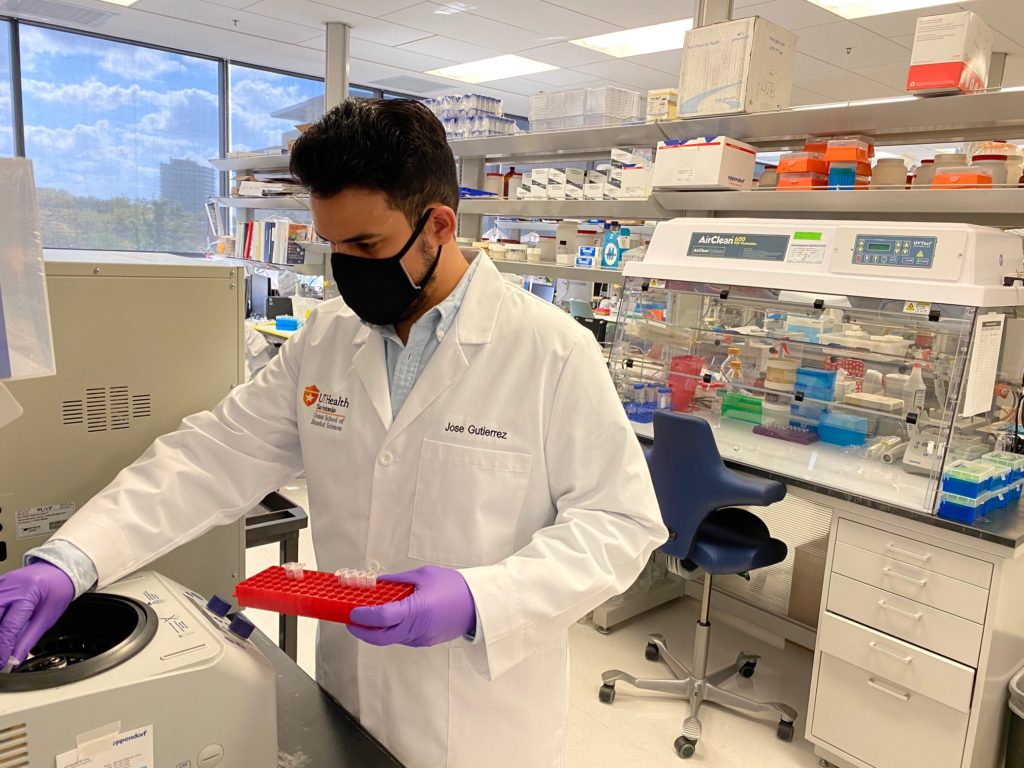
The importance of my research comes from the fact that prostate cancer is the most common newly diagnosed cancer in men in the United States. Meaning, if a man gets cancer in his life, it will most likely happen in the prostate. In addition to that, prostate cancer continues to be the second leading cause of cancer death in men in the United States, behind lung cancer. For some, prostate cancer can be slow growing and managed by what is called “active surveillance,” which basically means regular checkups to make sure the tumor does not become aggressive. For others, tumors in the prostate can be more aggressive and spread to other parts of the body. This is when it is designated as advanced prostate cancer. The current therapies for advanced prostate cancer include chemotherapy or removal of the prostate, called radical prostatectomy. This surgery can lead to urinary incontinence, erectile dysfunction, or sterility. These side effects may lead to more than just physical distress as prostate cancer can be seen in men as young as 50, and can take a toll on a man’s psychological and emotional wellbeing. Even if the prostate is removed, the cancer may return. It is then that therapies move to radiation or hormone treatments, which have been shown to not always be curative. So, there is still a need for new therapies that can be more effective and less detrimental to a prostate cancer patient’s quality of life.
What would you like the general public to know about it?
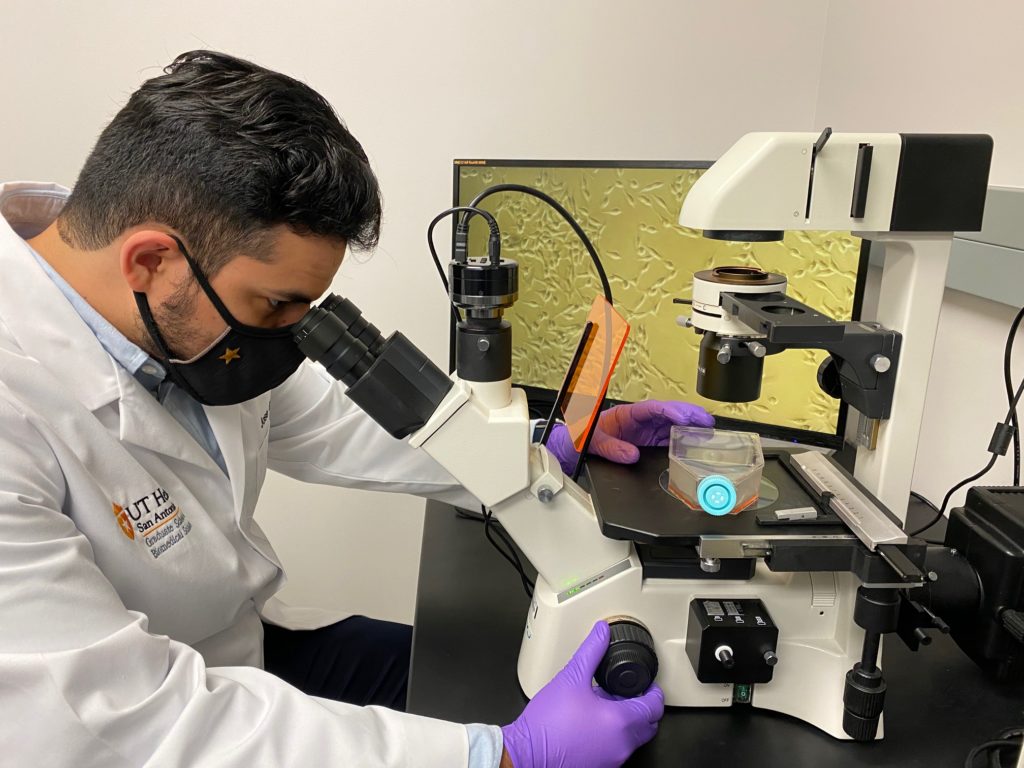
What I would like to say to the public is that, if you are a man living with prostate cancer, talk with your physician about possibly decreasing the amount of folic acid in your diet. Folic acid is a type of folate, which is the key component that drives one-carbon metabolism. While we normally must get natural forms of folate from vegetables, folic acid specifically is a man-made form of folate which is supplemented into our whole grain and enriched food products. This is important and done for other health reasons, particularly for pregnant women, but it results in some people in the United States having abnormally high levels of folate in their system. Lab studies have shown that cancer cell lines grown in high levels of folate gain a growth advantage compared to conditions with lower folate levels. This evidence, among others, suggests lowering your folic acid intake may be beneficial.
What are your future plans?
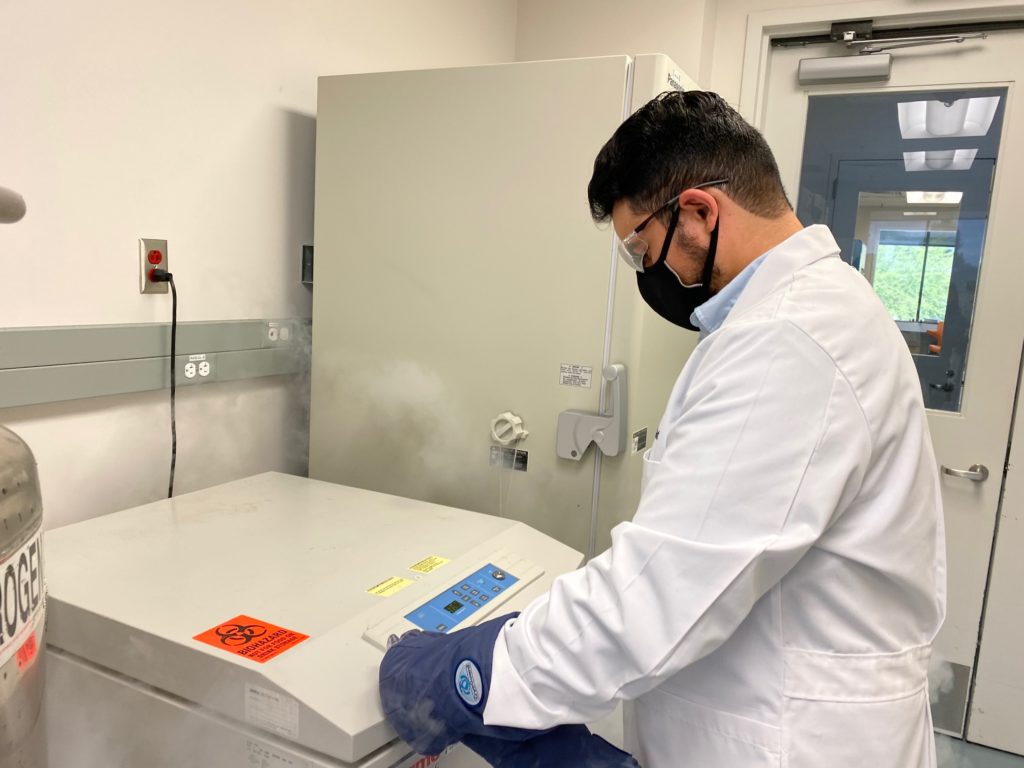
I recently became a scholar of the Scientist Mentoring & Diversity Biotech Program, which pairs ethnically diverse students with mentors that work in biotech. Scholars learn about career opportunities and receive career development coaching. I plan to leverage this training, along with my degree program training, to acquire a job in industry. I want to enter biotechnology to aid in the pursuit of advanced therapies that will significantly contribute to the welfare of those who suffer from serious illness.
What do you like to do outside of school?
Under normal circumstances, I like to go to all the favorite shopping and eating spots around the city with family and friends. I like hiking and exploring local trails. I am a music lover, and play acoustic and electric guitar as a hobby.
